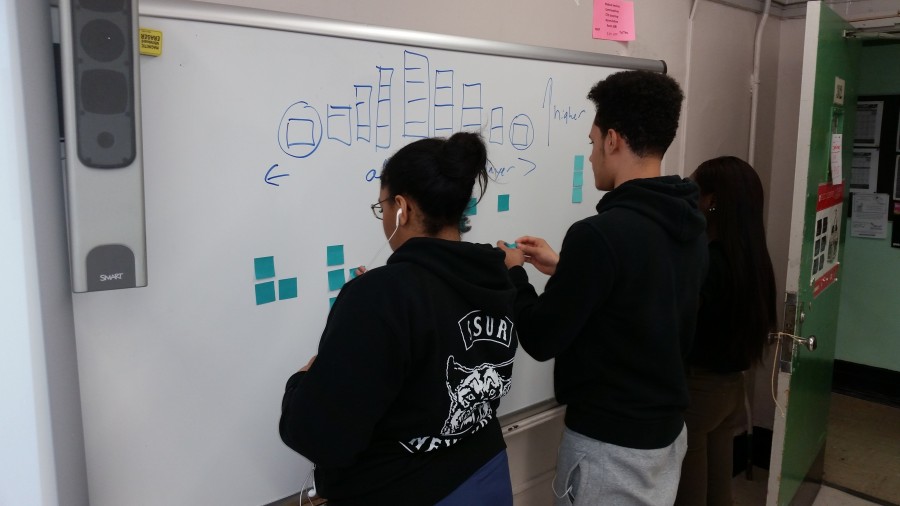My class today ended pretty much exactly like it ended the last time. That class also ended exactly like that lesson from the previous year. They all weren’t very good, and I can’t be surprised.
Planning for my classes this year feels like foraging through the wilderness for the first time since I started teaching a decade ago. As an administrator, I only teach one class, 3 days a week. I did this last year, but I wasn’t teaching math. This year it still feels like I am throwing ideas against the wall to see what sticks even when I have done these things before. The weird thing is these lessons have been used over and over for years, it has been difficult for me to get in a rhythm when teaching them. Some materials I have date back to before I used google drive, yet when I teach it I end up making all sorts of mistakes. I’ll emphasizing the wrong things, I’ll drive the class into discussions we need to avoid, and I often don’t see really interesting follow-ups and extensions until after class is over. Pacing has also been off almost every class, forcing me to rush the lesson’s conclusion and leaving each class with regrets.
It’s not all sadness and rainstorms. Kids are passing my class, some are even excited to come. Other teachers still look to me for ideas for their class. This isn’t a diatribe about how I feel I’m a terrible teacher. This is a reasoned analysis about why I’m not a better teacher, and why this blog is also the first step towards becoming a better teacher.
A place for talking about teaching and learning
After walking away from today’s class I remember thinking how come everything felt so clunky? Why did I wind up in the same spot that I had in the last lesson? Why did the clunky group work structure from today go as poorly as the group work in a similar lesson from last unit? How am I not learning about my teaching?
During my time as a 5-period-a-day teacher I could learn through my clunky first period. My classes would get better through the day, and then I would go home feeling like a champion. My growth was just built into the schedule. Now that I am only teaching one class I am realizing that I need to take a more deliberate approach to my growth as a teacher.
Anyways, I’m walking away from today’s class, feeling upset about how it went, and I thought to myself “I need a place to think about my teaching,” before thinking: “Duh! You’ve got a blog!” If I had been blogging about my classes this whole time I would have been able to reflect back on my old classes! If I had a regular blogging practice during the day I would have an outlet for my lesson frustration! And, if I ever do figure out how to get things done well ahead of time, I could get feedback on ideas from all the teachers in the #MTBoS! (I really did think through all of this stuff, btw, as if it wasn’t staring me in the face the whole time).
Why didn’t I think of this earlier?
Blogging about my teaching seems stressful, especially when I had a day that was bad. Pushing the submit button has gotten hard lately. This year I have more partial posts in my “Drafts” than I have actual Class Logs (Clogs). Having a new job, and a new baby has given me less time for writing, but if I have time to write drafts, or write posts about non-teaching related stuff, I can’t write anything about what I’m teaching, or what I plan on teaching? Other bloggers like Michael Pershan make it work with similarly aged children. Justin Aion has been blogging for years and he has two kids. It seems like time for me to spend more time writing and thinking, and then thinking and writing.
To get started I want to do one of those one month challenge. I think seeing as how December is right around the corner it would make sense to start now and start doing it every day. I want to make time during the day to write some mathematical thoughts each day. I may also write some thoughts about administration or other things in order to keep the momentum going, but I should be able to start something. This daily plan should work, maybe it is even worthy of some kind of hashtag, but maybe I can talk about that tomorrow since I’m going to be writing.

